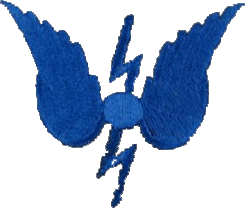


A Life in the WRNS
by Audrey Martin
©RN Communications Branch Museum/Library
PREFACE
Born into the Royal Navy in 1932 - at the Royal Naval and Royal Marines maternity home in Southsea - I had a rosy view of life in the Service, despite the fact that my father (who served twenty eight years) told us it had its drawbacks. My elder brother took him at his word and joined the RAF when called up during the War! When I was seventeen my mother died and I left Gosport Grammar School to keep house for my father and brother, who now lived at home. Two years later my father married a wonderful Yorkshire woman and I was free to take up a career so started work at Gosport Public Library where I stayed for four years but still hankered after a naval life so finally I sent off for information.
There is a common belief that everyone's autobiography would provide some measure of interest and, if that is the case, there must be many stories which will never see the light of day. My own experiences might never have been told - I leave it to the reader to decide whether or not that might have been a good thing - had it not been for a series screened on television at the beginning of 1969 entitled 'The Life and Times of Lord Mountbatten'.
Admiral of the Fleet the Earl Mountbatten of Burma was a living legend in the field of naval communications, due to his early association with the Branch as an instructor and his long standing interest in naval wireless telegraphy and signals. Although a study of his Service and public life reveals numerous other facets - including his notable achievements in Burma, his term of office as Viceroy of India and his wartime adventures as Captain of HMS KELLY - to those of us in the Communications Branch he was always 'our Lord Louis' and, selfishly and quite unreasonably, we did not want to share him with anyone outside the Branch. From India he returned to the Navy and served in command of the First Cruiser Squadron in Malta before being appointed Fourth Sea Lord. A term as Commander-in-Chief Mediterranean followed, during which time he also became NATO Commander-in-Chief Allied Forces Mediterranean, and he was then appointed First Sea Lord.
There was one more step to be taken in his Service career and our Chief Yeoman in Malta, announcing to the assembled Watch the appointment of Lord Mountbatten as Chief of the Defence Staff, made it quite clear that such a high place in the unified Ministry of Defence was a just reward to a former Signals Officer. The announcement that his life story was to be shown on television emboldened me to write to Lord Mountbatten, telling him how much we in the Branch had always thought of him. To my delight I received the following reply:
| 'Dear Miss Martin, Your letter of 30th December was especially charming and I am writing to thank you very much for it. As you rightly surmise I had a very special feeling about the Communications Branch and about WRNS in that Branch, my elder daughter having been a Communications Wren herself. How interesting that your father knew my late brother. He was the Squadron Gunnery Officer on board HMS CARDIFF at the time you mentioned. I refer to him in programme 3 of my TV series. I am so sorry you were invalided from the Wrens and am glad you are still working for the Navy. All good wishes for 1969. Yours sincerely, Mountbatten of Burma' |
As the story unfolded week by week on our screens I saw and heard many references to naval communications and was able to revive numerous memories of people, places and systems I had known during my own Service career. With such a subject it was natural enough for the television series to be reflected from a man at the top of the ladder. It struck me that my own Service life span as a Wren and Leading Wren in naval communications might be diametrically opposite in terms of approach angle while still remaining loyal to the ideals of the Service. Purely for my own interest, I produced a typed script which was somewhat shorter than this final effort. I forwarded a copy of this original script to Lord Mountbatten, who kindly replied as follows:
| 'Dear Miss Martin, Thank you for your letter of the 23rd May and for sending me one of the copies of your memories of your service in the Wrens. I will pass this on to my elder daughter, Patricia, who was in the Wrens from 1943 to 1946, as you suggested. Yours sincerely, Mountbatten of Burma' |